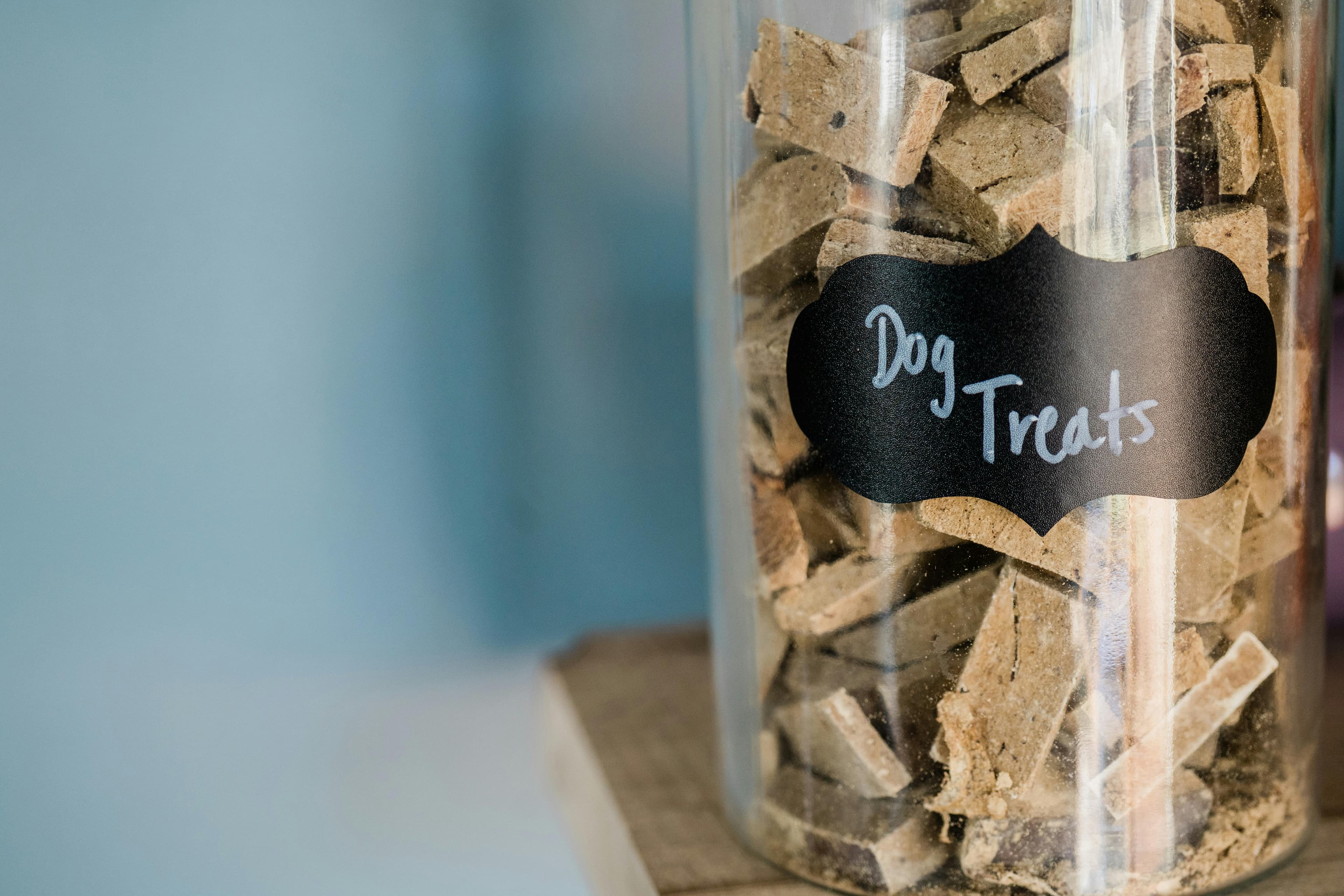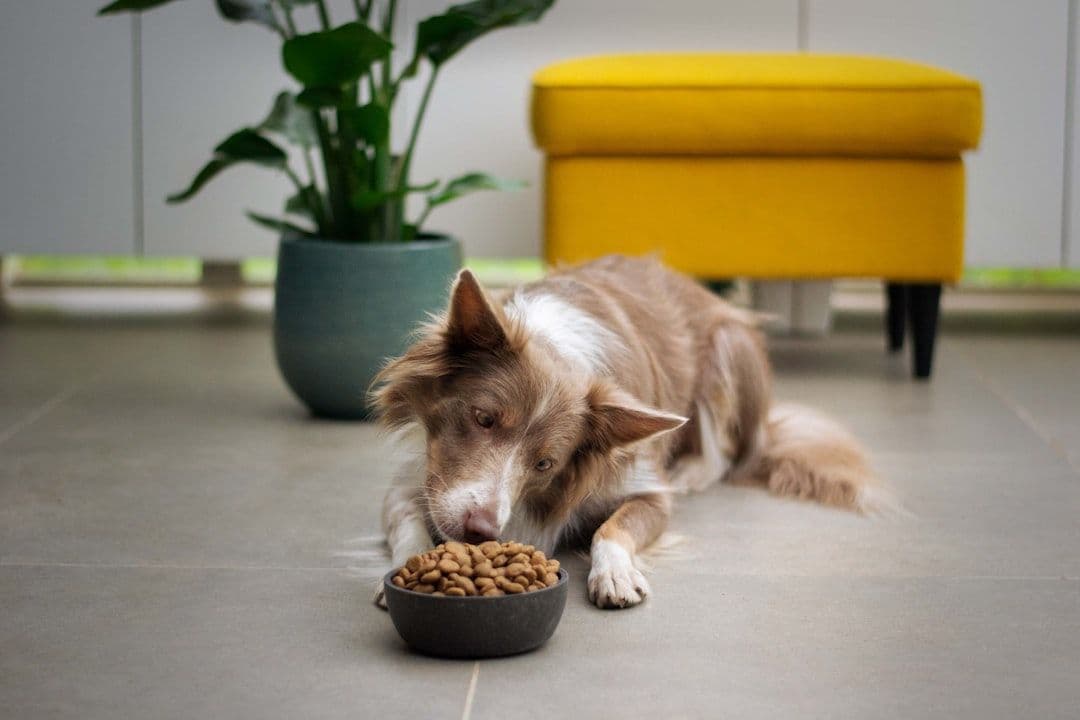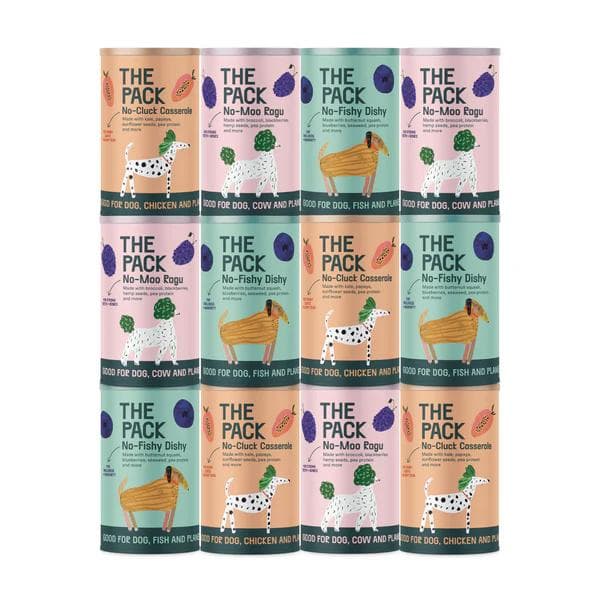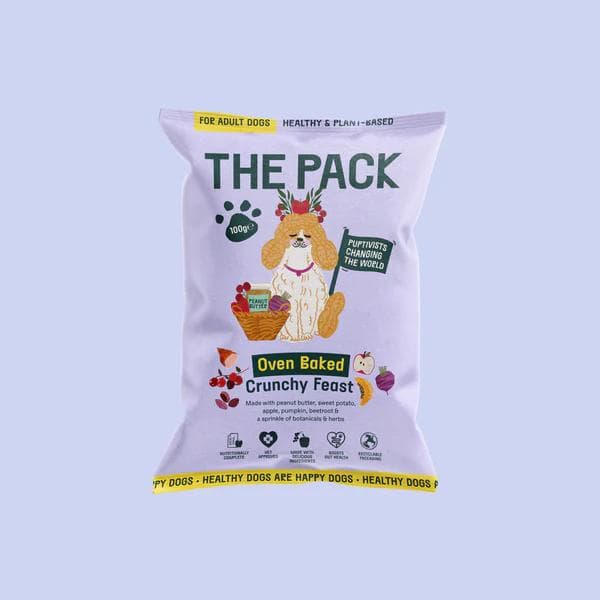Key Takeaways
- Choosing the best prebiotic dog food is very important for your dog's general health and digestion.
- Prebiotics feed good bacteria in the gut, which helps create a healthy microbiome that helps with digestion, immunity, and nutrient absorption [Schmitz et al., 2024 – Vet Record].
- Chicory root, inulin, and beetroot pulp are all high-quality prebiotic nutrients that help digestion the most.
- Sweet potatoes, bananas, and apples are all natural prebiotics that can help improve the health of dogs who eat commercial dog food.
- Prebiotics nourish the bacteria that are already in the gut, while probiotics provide new strains of bacteria.
- Dog food compositions that focus on digestion generally include prebiotics, probiotics, and fibre to help keep the gut healthy.
- A healthy gut flora boosts the immune system, lowers inflammation, and makes the intestinal barrier stronger.
- Before putting your dog on a prebiotic diet, always think about their special needs, like their sensitivity, age, or breed-specific issues.
- High-end companies focus on making formulas that nourish the intestines and balance nutrients to help your dog thrive.
Knowing how important prebiotics are for your dog's health might change how well they digest food and how healthy they are overall. In the next sections, we'll talk about how prebiotics function, look into natural ways to add them to your dog's diet, and provide you a list of the best prebiotic dog foods to meet your pet's needs.
Introduction
Your dog's overall health starts with their intestinal health. Prebiotic dog food is a scientifically proven technique to boost your dog's health by boosting their immune system, digestion, and nutrition absorption. These particular formulas feed the healthy bacteria in your dog's gut, which helps keep the internal ecology in balance and supports excellent health.
There are so many pet food options on the market. How do you know which ones are best for your dog? It's important to know the difference between high-quality prebiotic sources and less effective ones, especially for dogs with sensitive stomachs, allergies, or specific dietary needs.
We'll talk about what prebiotics do in dog food, look at several natural prebiotic options, and offer some of the best ones available. Let's make sure your dog receives the extra help they need for a healthier, happier life.
What Are Prebiotics and What Do They Do in Dog Food?
Prebiotics are unique plant fibres that feed good bacteria in the intestines. Prebiotics, on the other hand, don't add new bacteria to the gut. Instead, they nourish and increase the good bacteria that are already there. This difference is very important, especially for the long-term health and stability of the gut.
A gut microbiome that is healthy affects more than just digestion. It affects the immune system, levels of inflammation, and even how you feel emotionally. Prebiotic fibres go through the small intestine without being broken down and then ferment in the colon. This process of fermentation makes short-chain fatty acids, which:
- Lower the pH of the gut to keep bad bacteria from growing,
- Give energy to gut cells, and
- Make the intestinal lining stronger.
Scientific studies show how important prebiotics are for dogs. For instance, a research at the University of Illinois discovered that dogs that ate food with prebiotics in it had 23% more Bifidobacterium bacteria, which led to higher stool quality and better digestive health.
Prebiotics work well with probiotics. Probiotics bring in good bacteria, but they only work if they can live in a friendly environment, which prebiotics create. This synergy is especially crucial for dogs that are sensitive or who are recuperating from things like medications, which can kill off gut flora.
In the end, adding prebiotics to your dog's diet helps their gut bacteria stay healthy, which is important for their long-term health and energy.
Important Parts of Prebiotic Dog Food
Adding several nutrients to prebiotic dog food can really help your dog's digestive health:
- Chicory Root: This ingredient is high in inulin, a plant-based fibre that feeds gut flora and helps keep the digestive system in balance [Alexander et al., British Journal of Nutrition].
- Beetroot Pulp: People don't always give beetroot pulp the credit it deserves, but it helps make healthy stools and bacteria ferment, which is good for your gut for a long time.
- Jerusalem artichoke is full of inulin and fructooligosaccharides, which help the gut flora and keep the microbial balance in check.
- Yacon Root: Helps Lactobacillus and Bifidobacterium grow, which makes digestion easier.
- Mannanoligosaccharides (MOS): This prebiotic comes from yeast and stops dangerous germs from sticking to the lining of the intestines.
- Fructooligosaccharides (FOS): Helps good microorganisms in a specific way, which speeds up the process of improving your dog's gut health.
Top dog food companies put these ingredients first and use rigorous processing processes to keep their nutritious worth. This focus makes sure that diets with prebiotics have clear and consistent effects on all health indices in dogs.
Natural Prebiotic Options
Many natural foods that are not for sale also have prebiotic benefits and can be added to your dog's regular diet:
- Sweet Potatoes: Full of resistant starch, which helps microbes break down food and digest it.
- Apples: They provide pectin and soluble fibre that help keep the gut healthy. Don't forget to take off the seeds and cores.
- Green Bananas: They are a good source of resistant starch, but you should only eat them in little amounts.
- Pumpkin: It helps with digestion and is a great source of prebiotics for dogs with sensitive stomachs.
- Oats: They have beta-glucan, which helps good bacteria thrive and makes sure that digestion happens slowly.
- Asparagus and Artichokes: Great sources of prebiotics, but start with little amounts to minimise gastrointestinal problems.
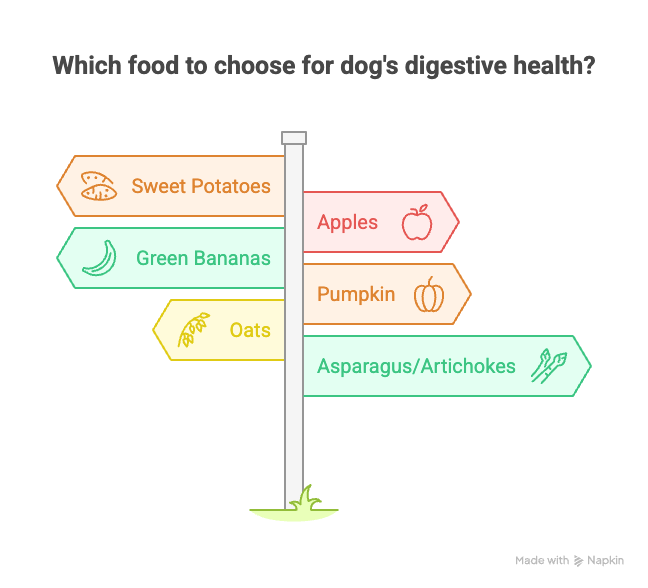
When you give your dog natural prebiotics, only give them a small amount, 5–10% of their total food intake and watch for any signs of intolerance. These extras work well with prebiotic dog feeds to provide your dog's intestinal health full assistance.
How to Pick the Best Prebiotic Dog Food for Your Pet
Dogs need different kinds of food depending on their age, breed, activity level, and how sensitive their stomachs are. These are some things to think about while choosing the finest prebiotic dog food:
- Sensitive Stomachs: Pick mild foods that have chicory root or beetroot pulp in them and are made with only a few ingredients to cut down on irritants.
- Life Stage: Prebiotics that help puppies' guts grow quickly are good for them, but older dogs need formulations that are made for their age to help with their changing digestion.
- Needs by Breed: Larger breeds that are prone to digestive problems like bloat and smaller, more active breeds often need special prebiotic blends.
Most high-quality dog meals have a few different forms of prebiotics, which helps keep the microbiota healthy. To avoid stomach problems during the move, it's important to slowly switch to new foods. For active dogs, think about adding high-energy foods that help with digestion and metabolism.
Conclusion
Prebiotics are an important part of keeping your dog's digestive tract healthy, boosting their immune system, and making them feel better overall. Prebiotics feed good gut bacteria, which helps the microbiome grow and improve digestion, food absorption, inflammation, and gut resilience. Chicory root, beetroot pulp and Mannan-oligosaccharides are some of the best ingredients because they have been shown to be good for you [Le Bon et al., 2023 – PMC]. Sweet potatoes and apples are other great natural supplements.
When choosing the best prebiotic dog food, you need to think about your pet's individual needs, such as their age and any allergies they may have. To get your animal friend to have the best gut health, you need to make gradual changes to their food, use high-quality products, and keep an eye on them all the time.
Choosing dog food that is high in prebiotics is more than just a dietary decision; it is a promise to help your dog live a longer, healthier, and more balanced life. If you make your gut health a priority, you'll be able to live a longer, happier life.


